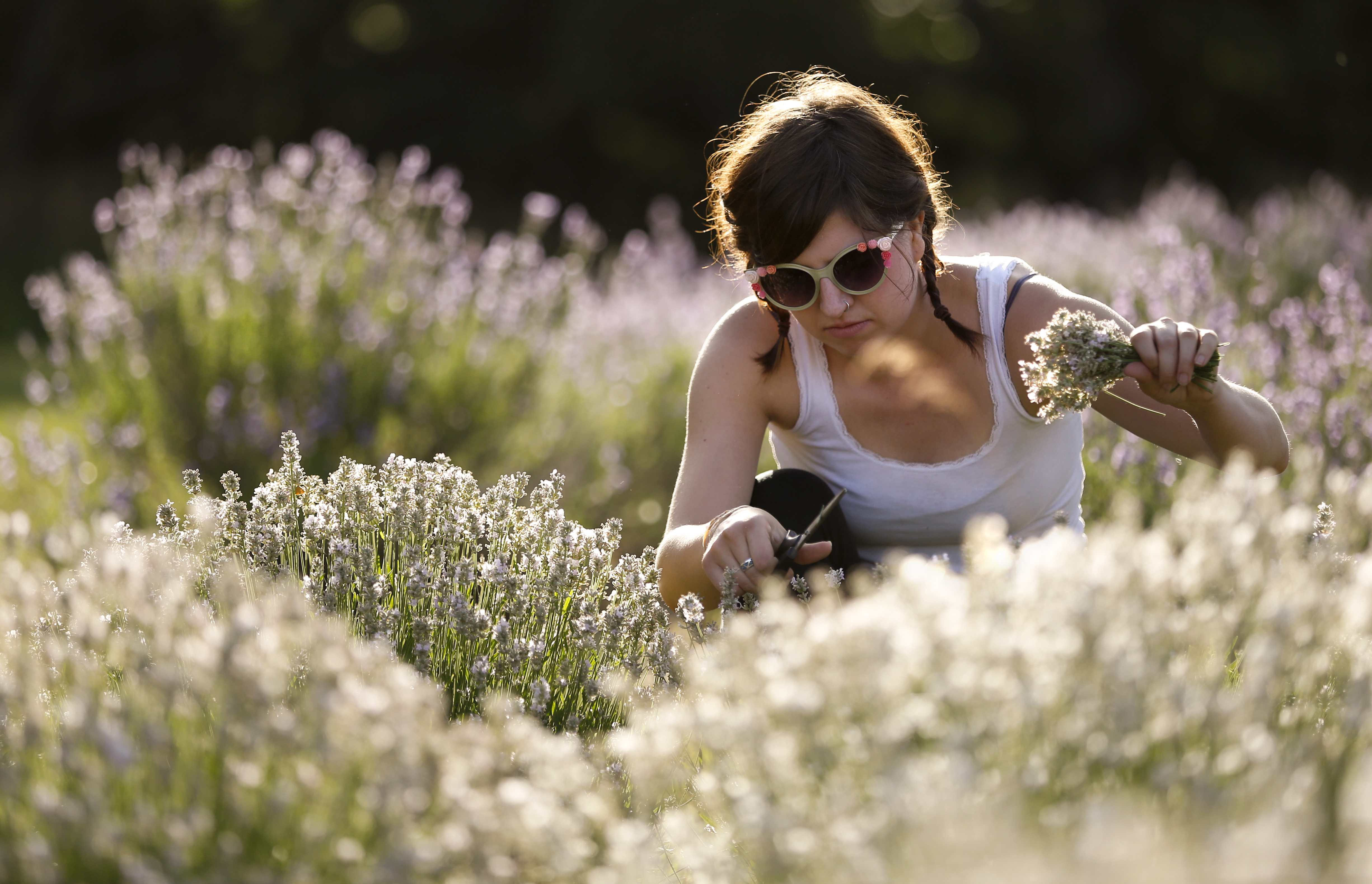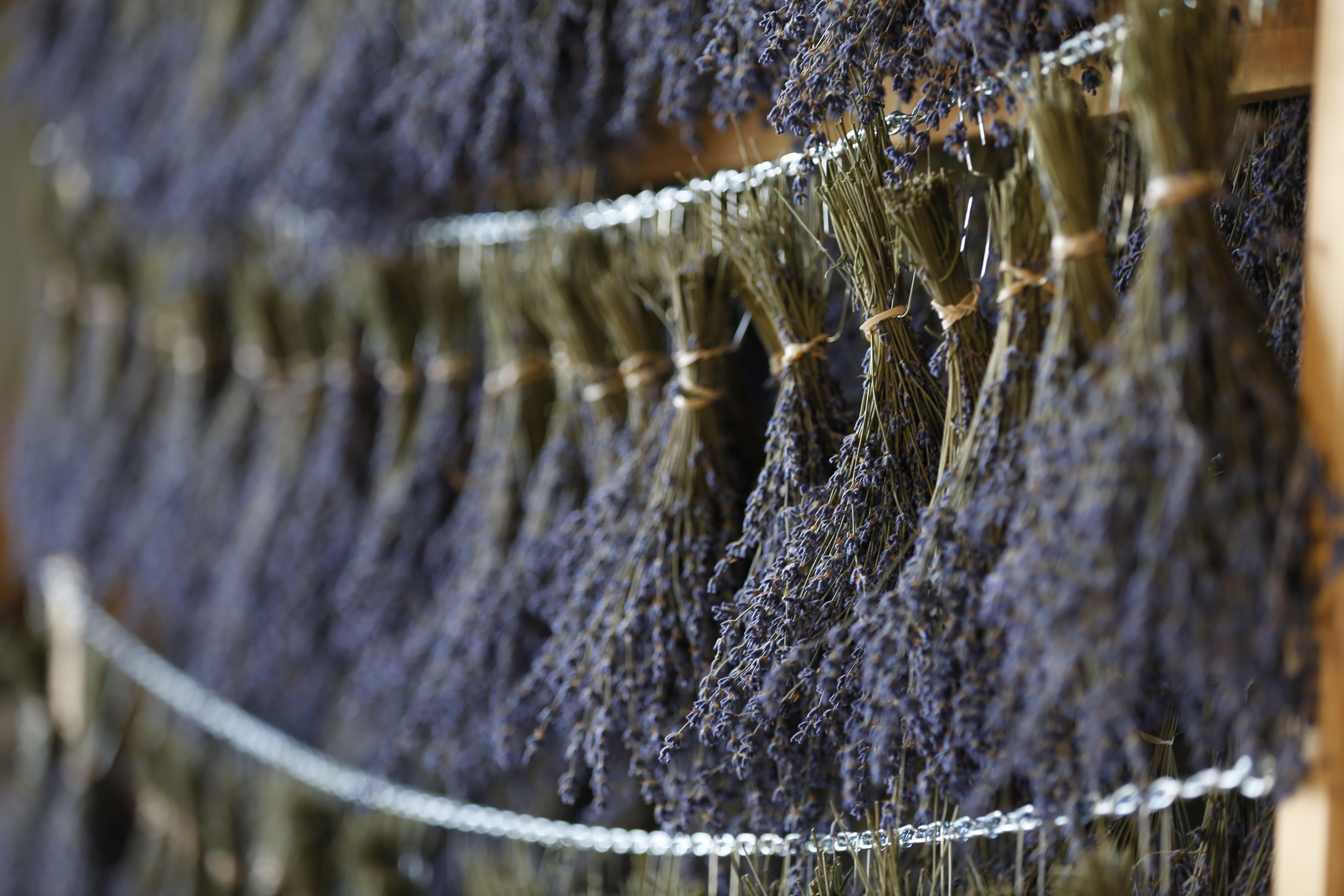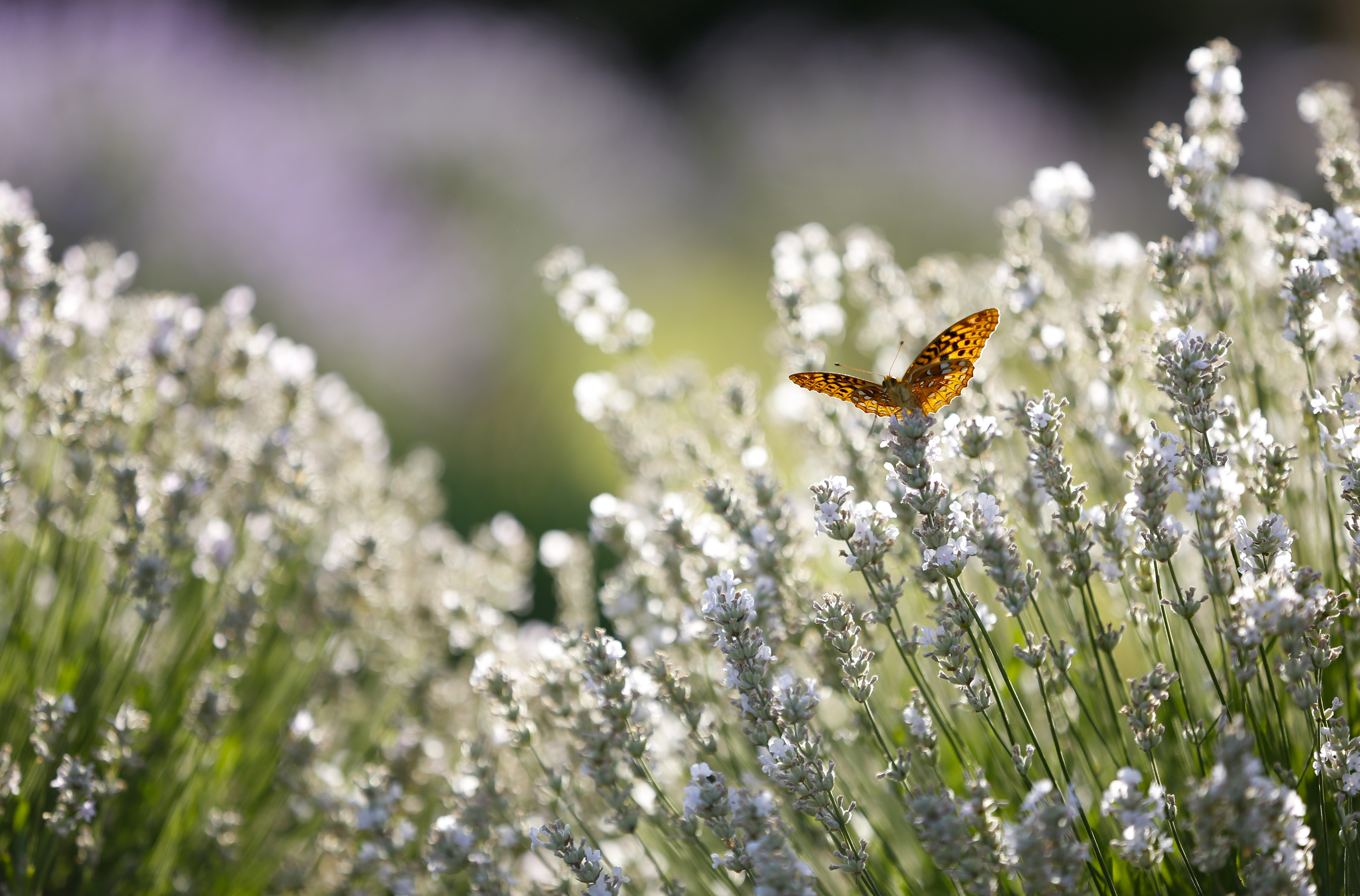Agritourism provides sales boost for small farmers, fresh air for city slickers

Mark and Pam Thomeczek of Marshall, Mo., sample wine in the tasting room at BlueJacket Crossing Vineyard and Winery outside Eudora. BlueJacket Crossing, a designated Kansas agritourism site, sells more wine by being able to offer a farm experience to go with it, owner Pep Selvan-Solberg says.

Worker Lindsey Kellenbarger, Lawrence, cuts bunches of pink lavender on Thursday, June 27, 2013, at Washington Creek Lavender Farm. Washington Creek recently received its official agritourism designation from the state and is open to the public on a limited basis.

Looking for a way to show their lavender products to visitors, Washington Creek Lavender Farm owners Jack and Kathy Wilson built a new barn, which has a gift shop on one side and a drying room for freshly-cut lavender on the other side. The Lone Star farm got its county and state agritourism designation this spring.

Bunches of lavender hang from a drying rack on Thursday, June 27, 2013, at Washington Creek Lavender Farm.

A butterfly rests on a sprig of pink lavender on Thursday, June 27, 2013, at Washington Creek Lavender Farm.
Pep Selvan-Solberg doesn’t sell too many bottles of BlueJacket Crossing wine from liquor store shelves, especially not outside Douglas County.
But get somebody a few turns off the paved road, into a wicker chair on his barn’s gracious covered porch, enjoying a gentle breeze and view of the grapevines that produced the wine they’re sipping? A sale is almost a sure thing.
“It’s really important to get people to come out here and enjoy the wine,” said Selvan-Solberg, who owns the Eudora vineyard and winery. “A lot of people will come back, not because they think your product is great, but because they enjoyed the experience.”
Agritourism is one way small Kansas farms are increasing visibility of their products to boost their bottom lines. At the same time, farmers say, opening to the public is a chance to share their passion for what they do.
There are more than 300 state-registered agritourism sites in Kansas, with new permit requests weekly, according to Sue Stringer, manager of the agritourism arm of Kansas Department of Wildlife, Parks and Tourism. Douglas County is home to roughly 40 of those sites.
Statewide, agritourism sites range from ranches where city slickers can help burn pastures to alpaca farms where visitors can feed the furry animals. On the more refined side, upscale dinners in orchards and cornfields attract people willing to pay $100 per meal.
The state’s program aims to promote Kansas and promote economic development by giving landowners some leeway for entrepreneurship and insulating them from liability, Stringer said.
“I think of it as diversification of their farm business,” she said. “This is something they can do to spread out their opportunities to make money.”
Opening up
Washington Creek Lavender Farm, near Lone Star, has been selling its lavender products at farmers’ markets and online for more than five years. Owner Jack Wilson said the most frequently asked question he hears is, “Can we come and see it?”
Until this summer, Washington Creek wasn’t set up for public access. But since obtaining its agritourism designation from the county and state this spring, the lavender farm has added a public driveway, signage, a parking area and a barn with a gift shop. It’s open limited hours while the lavender is in bloom — for about one more week — and also by appointment.
Wilson said the extra visibility should help increase sales of Washington Creek’s products, which include lavender neck pillows and sachets. Also, he said, he and his wife Kathy are excited to share the beauty and tranquility of the fields they see every day.
Agri-challenges
Karen Pendleton figures she could get a lot more done on her farm without all the people coming through. They may be helping with the harvest, she said, but they’re not that efficient — and they stand around and talk a lot.
At the same time, if they’re willing to pay a premium for the experience, she’s willing to give it to them. Pendleton’s Country Market, located east of Lawrence, has been offering you-pick crops for 32 years.
“We don’t get the yield from a field when we do pick-your-own, because customers aren’t the best pickers,” Pendleton said. “But it brings them out to the farm, and they’re going to buy more other things.”
Case in point: Customers paid $1.25 a pound for their spoils at Pendleton’s annual potato-digging day Friday, well above grocery-store price. And while Pendleton’s Butterfly Bio-Villa doesn’t serve a purpose for the farm, it helps sell butterfly-friendly plants.
Selvan-Solberg, of Bluejacket Crossing, said farming can be a challenging profession, especially in an unpredictable climate. It helps to offer visitors a winery experience instead of just wine.
“This is not an easy job; we have lots of obstacles,” he said. “Agritourism is really an important ingredient with specialty crops, in terms of giving you the opportunity to take care of your primary function but add(ing) a little depth with activities.”







